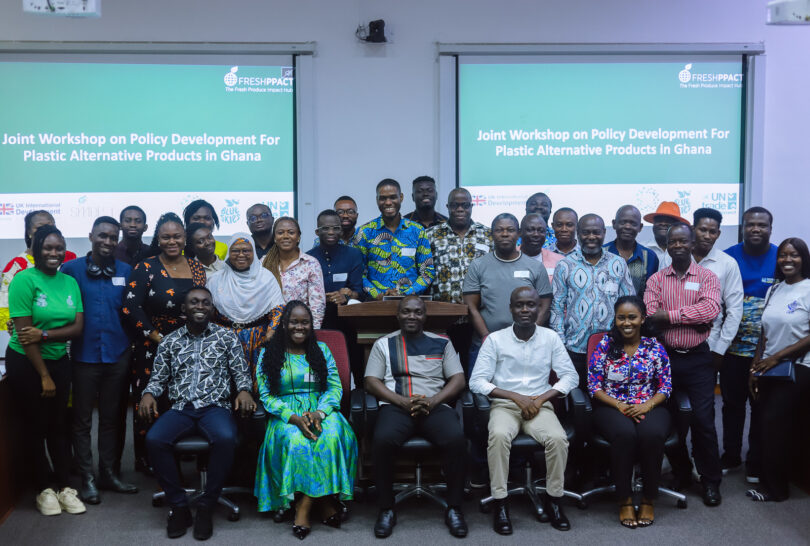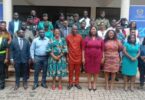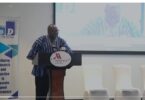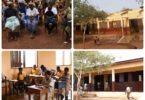Source: Environmental News Desk
The Fresh Produce Impact Hub (FRESHPPACT) project team, together with Blueskies, the Ministry of Environment, Science, Technology, and Innovation (MESTI), and other stakeholders in Ghana’s plastic production and waste management chain, has organized a joint workshop on policy development for plastic alternative products and plastic waste management in Ghana.
This workshop was held in Accra on Thursday 24th October 2024 at the the China Europe International Business School (CEIBS) in East Legon.
The primary aim of the joint workshop was to build on the previous work that has been undertaken in the area of plastic waste management policy development in Ghana (particularly in relation to plastic alternative products), by identifying concrete and actionable recommendations for refining and enhancing the effectiveness of Ghana’s existing plastic waste management policies.
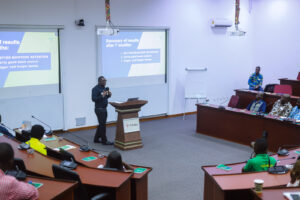
Director of FRESHPACT
Dr. Ebenezer Laryea, Associate Professor for Sustainable Development at the University of Northampton and Director of FRESHPACT, emphasised that there is a global crusade for a shift to green economy where plastic use is to be reduced for environmental sustainability.
Dr. Laryea revealed the diverse consequences that plastics have on agriculture and environmental sustainability in Ghana. According to him, plastic materials used as mulch in agriculture to enhance moisture rather create distruction on farm lands and the environment at large.
He also highlighted alarming statistics such as 840,000 tonnes of plastic waste collected annually in Ghana, out of which a paltry 9.5% is recycled.
Breakout Sessions
Participants of the workshop were drawn from various sectors, including government, industry, academia, civil society, policymakers, environmental activists, private sector and the informal sector.
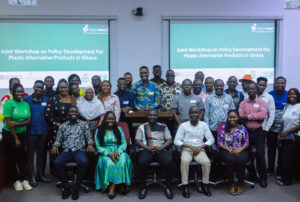
They were divided into smaller groups to facilitate focused discussions on topics related to policy framework for plastic alternatives. Each group was tasked with brainstorming ideas that encompassed economic mechanisms, key areas of regulations, international standards, education, capacity building, monitoring and evaluation.
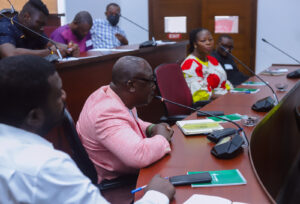
The Head of Internal Audit on Environment, Health, and Safety with Blue Skies, Mary Aka, hinted that as part of measures to reduce plastic waste, Blue Skies normally encourage their patrons on fruit juice products to gather them after use, and the bottles collected are handed over to a recycling company.
In his remarks, the Zoomlion Foundation Coordinator, Thomas Narh Korley,
added that educating schoolchildren about the impact of plastic waste is crucial in fostering a sense of responsibility that would encourage them to adopt sustainable behaviours.
He recommended similar workshops and seminars for schoolchildren and youth.
Source: www.thenewindependentonline.com


